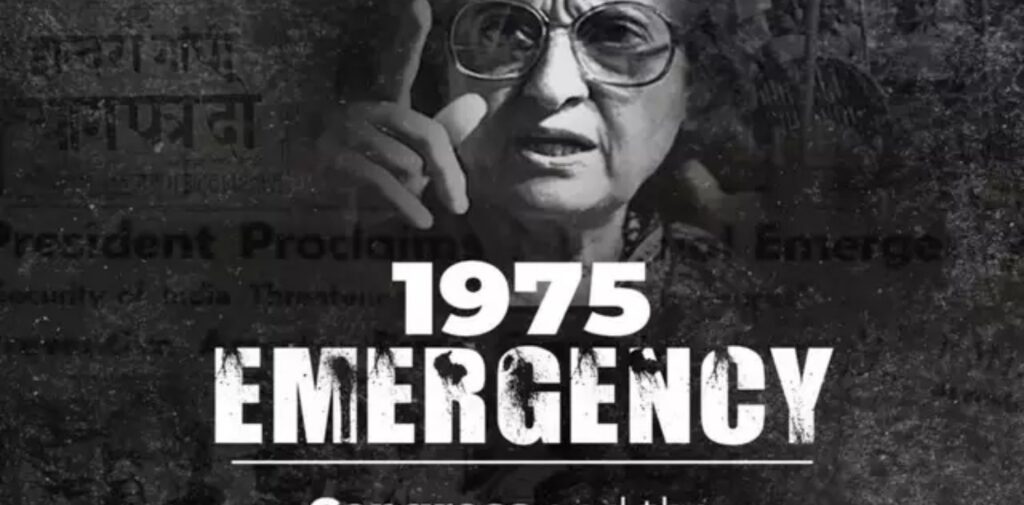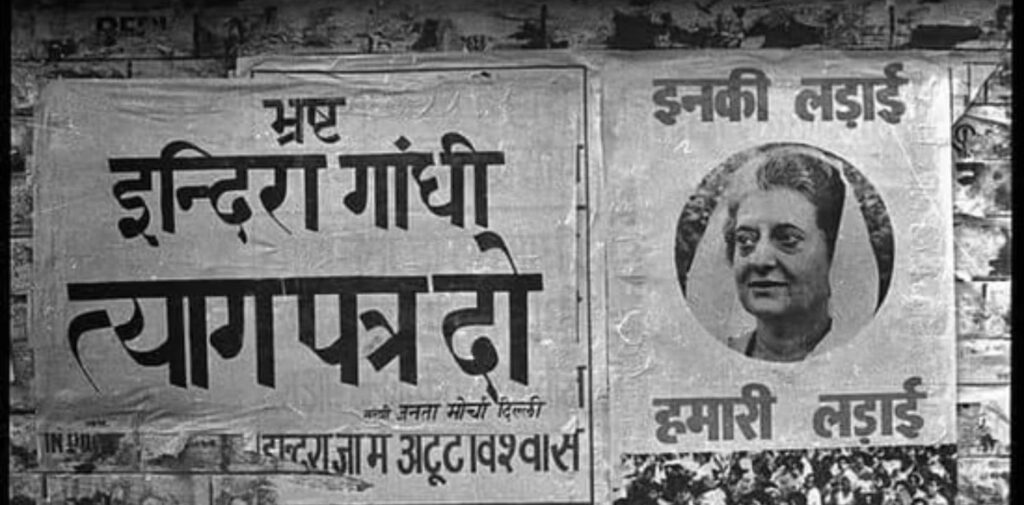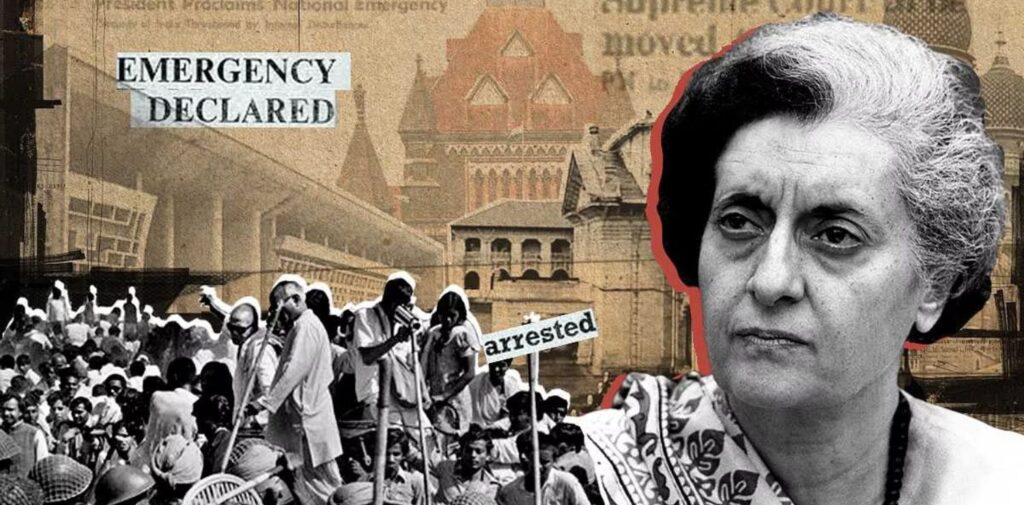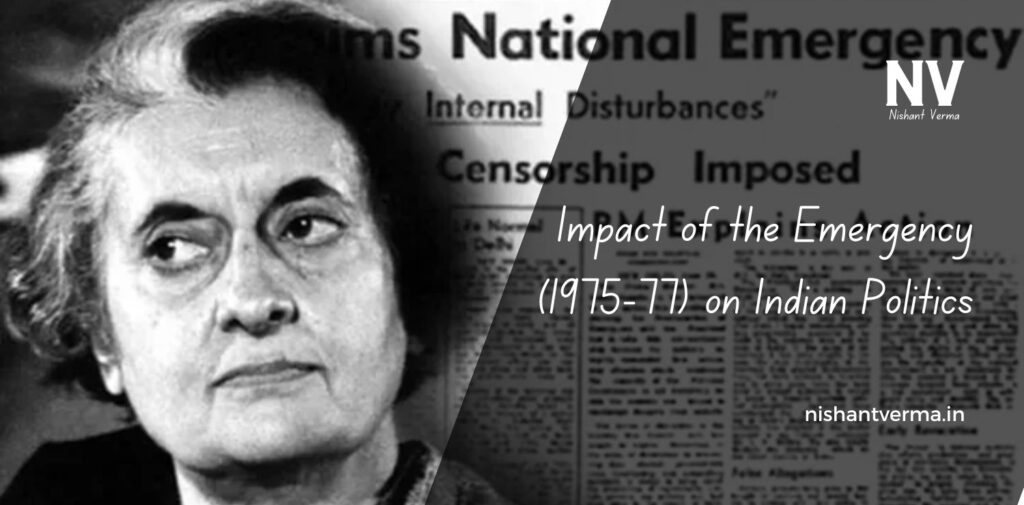In India’s history, one of the most significant and controversial periods was the Emergency from 1975 to 1977. This was a time when the government had special powers to control the country more strictly, and it left a huge impact on Indian politics. The Emergency was declared by Indira Gandhi, the then Prime Minister of India, and it changed the way India functioned for about 21 months. To understand this better, let’s explore what’s Impact of the Emergency was, why it happened, and how it affected the political landscape of India.
What Was the Emergency?
The Emergency was a time between 1975 and 1977 when the Indian government decided to suspend many of the basic rights of citizens and gave the Prime Minister, Indira Gandhi, extra powers. This meant that things like free speech, freedom of the press, and even the right to protest were limited or completely stopped.
Normally, in a democracy like India, people have the right to vote, speak freely, and disagree with the government. However, during the Emergency, these rights were suspended, and many people were arrested or put in jail without trial. The government-controlled everything tightly, and it was a time of fear for many.

Why Did the Emergency Happen?
To understand why the Emergency was declared, we need to know some of the important events leading up to it.
- Political Crisis and Growing Unrest: In the early 1970s, India faced many problems. The country was struggling with economic issues like inflation (rising prices of goods) and unemployment (lack of jobs). There were also protests in different parts of India, and people were unhappy with the way things were being managed.
- The Allahabad High Court Case: In 1975, there was a big legal issue that led to the Emergency. The Allahabad High Court found that Indira Gandhi had used illegal methods to win the 1971 elections and disqualified her from being a Member of Parliament (MP). This meant that she was not allowed to continue as Prime Minister. However, instead of stepping down, Indira Gandhi decided to appeal the decision.
- Declaring Emergency: Amidst all this political tension, on June 25, 1975, Indira Gandhi declared the Emergency, citing “internal disturbance” as the reason. This allowed her to rule without the normal checks and balances of democracy. The President of India at that time, Fakhruddin Ali Ahmed, signed the Emergency declaration, giving Indira Gandhi full control over the country.
What Happened During the Emergency?
The Emergency period was marked by some harsh and dramatic changes in the way the country was governed. Here are some important things that happened:
- Suspension of Civil Rights: During the Emergency, the government suspended fundamental rights guaranteed by the Constitution. People could be arrested without a reason, and they were often not allowed to go to court to challenge their arrests. Many political leaders, including those from opposition parties, were arrested and put in jail.
- Censorship of the Media: The press, which normally has the freedom to report news and criticize the government, was severely controlled during the Emergency. Newspapers, television, and radio were not allowed to criticize the government. Many journalists were also arrested for writing against the government.
- Forced Sterilization Campaign: One of the most controversial actions during the Emergency was the forced sterilization campaign. The government tried to reduce the population growth by forcing men and women to undergo sterilization (a medical procedure to prevent having children). This was done without proper consent from many people and caused a lot of anger.
- Political Repression: The government banned protests and political movements that went against it. Political leaders from opposition parties were arrested, and there was little room for disagreement or criticism. The country was under strict surveillance, and people lived in constant fear of being punished for speaking out.
- Focus on Development: While the government cracked down on political opposition, Indira Gandhi also focused on development. She launched new programs like the “Garibi Hatao” (Remove Poverty) campaign, which aimed at improving the lives of the poor by focusing on economic development. However, many of these programs were criticized for being ineffective.

The Political Impact of the Emergency
The Emergency had a major impact on Indian politics, both in the short term and the long term.
- The Fall of Indira Gandhi’s Popularity: While Indira Gandhi was powerful during the Emergency, her actions led to a major loss of public support. Many people who had supported her in the past began to see her as a dictator who did not respect democracy. The Emergency left a negative impact on her image, and even though she remained in power, her reputation was severely damaged.
- Rise of the Opposition: During the Emergency, many opposition parties came together to fight against Indira Gandhi. One of the most significant groups was the Janata Party, which included people from different political backgrounds. After the Emergency ended in 1977, the Janata Party led by leaders like Jayaprakash Narayan and Morarji Desai won the 1977 general elections. Indira Gandhi and her Congress Party were defeated for the first time in many years.
- Changes in Indian Politics: The Emergency taught the Indian people an important lesson about the importance of democracy. After the Emergency, political leaders and citizens became more aware of the need to protect their rights and freedoms. It also led to stronger checks and balances in the Indian political system. The government realized that power must be exercised responsibly, and the people of India would not accept dictatorship.
- The Role of the Media and Judiciary: One of the lasting impacts of the Emergency was on the media and the judiciary (the system of courts). After the Emergency, there was a greater emphasis on ensuring that the press could report freely and that the courts would stand up for people’s rights. This period also saw the strengthening of institutions that could challenge government actions if they went too far.

How Did the Emergency End?
The Emergency ended in 1977 after two years. Indira Gandhi decided to hold elections, likely believing that her popularity would help her win. However, the public was angry about the way the Emergency had been handled, and many people voted against her. In the elections of 1977, the Janata Party won, and Indira Gandhi and her Congress Party were defeated. She lost her position as Prime Minister and was forced to step down.
Conclusion: Lessons from the Emergency
The Emergency was a dark chapter in Indian history. It showed how power can be misused, and how democracy can be threatened when leaders put their own interests above the people’s rights. The impact of the Emergency on Indian politics was immense. It led to changes in how political leaders viewed their power, how people valued democracy, and how the media and courts operated.
For the people of India, the Emergency was a reminder that freedom and rights should never be taken for granted. It was a period that taught the country the importance of democracy, accountability, and respect for individual freedoms. Even though it was a difficult time for many, it helped India grow stronger in its commitment to democratic values. The Emergency remains an important lesson in the history of India’s independence struggle and the ongoing fight for democracy and justice.




